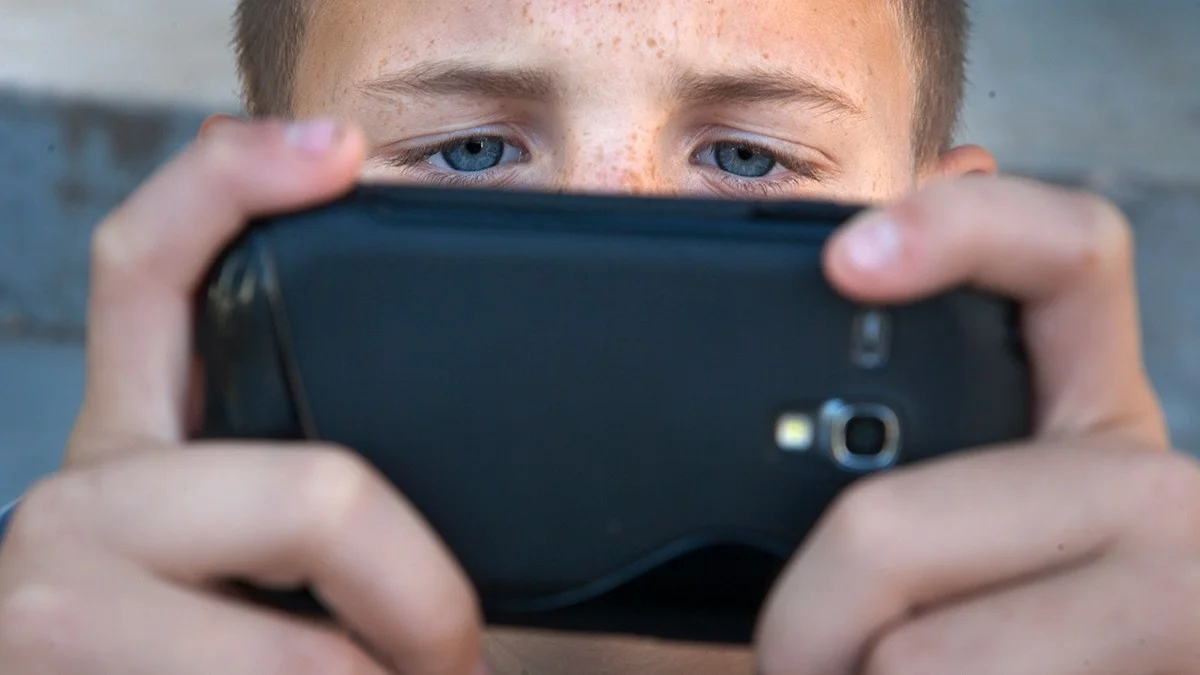Children’s rights should also be implemented in the digital sphere. UNICEF Switzerland and Liechtenstein favors a balanced approach focusing on children's rights to align digitalization and child protection. And policies that also emphasize the rights of children to protection, promotion and participation in the online world.
While the digital world doubtless poses many dangers and risks to children, it also offers many opportunities. Blanket bans as discussed in some countries should be viewed critically from the point of view of child protection laws. Such bans fail to solve the underlying causes and could shift the focus to illegal use, thus exacerbating the problems.
Children are exposed to countless risks online. They often come into contact with sexualized content or violence at an early age on the internet. Other serious dangers include cybermobbing, contact with strangers and exposure to unsuitable content. In addition, a constant online presence and excessive screen time can cause stress and lead to changed social contacts and interactions. All of this can negatively affect a child’s physical and mental health.
But using bans to restrict access to the digital realm falls short, as this fails to address the underlying causes – such as a lack of media literacy or the fact that too many technologies were developed without considering their impact on children – and will drive children to hide their use of the internet. This could mean that they become more involved in unofficial or unregulated platforms, which multiplies the risks. Media use would be increasingly hidden from parents and caregivers, thus impeding open communication. And open communication is precisely what's needed if children are to learn to approach the digital sphere critically and develop media literacy. This includes responsible use, the questioning of content and personal media consumption, technical understanding and competent handling. Instead of offering a solution, bans could therefore be counterproductive.
Participation in the digital space is important for children to reach their full potential and prepare them as best as possible for their future in a digitalized world. Children use the internet to learn how to network with others and express themselves. The digital world is an integral component of daily life for many children. They should learn to use the internet in the same way as learning to write and count. The digital sphere also offers opportunities for reducing discrimination and creating a more inclusive society. Pursuing a child-centric approach allows the better integration and active involvement of children, and also makes it possible to reach vulnerable groups who otherwise do not have any or only limited access to physical opportunities for promotion and participation.
UNICEF Switzerland and Liechtenstein advocates for a safe and child-friendly digital sphere that takes account of children's rights. When it comes to the implementation of the UN Convention on the Rights of the Child (CRC), the main responsibility lies with the state and its institutions. But the support of everybody – including companies and civil society – is needed to fashion a child-friendly digital space. What is needed to create a digital sphere where children can move safely and responsibly:
- Implementation of children's rights online: The rights to protection, support and participation found in the Convention on the Rights of the Child must also be guaranteed in the digital world. This includes, among others, the rights to non-discrimination (CRC Art. 2), privacy (CRC Art. 16), freedom of expression (CRC Art. 13) and information (CRC Art. 17). The implementation of child rights in the digital world is a global challenge requiring international cooperation and measures at the national as well as the communal levels. Suitable strategies, concepts and action plans are needed at all political levels and should be developed and implemented in collaboration with companies and civil society.
- Involvement of companies: The internet and many technologies were not developed with children and their rights in mind. This must now be rectified. Companies must design their platforms and digital technologies to be child friendly, and initiate measures to protect the privacy and integrity of children. This includes, for example, age-appropriate settings and content filters, transparent data protection provisions, and effective measures against hate speech and cybermobbing.
- Strengthening of digital skills: The promotion of media literacy enables children from an early age to develop the skills they need to successfully and safely navigate the digital world. Children, as well as their parents and caregivers, must be supported in recognizing and dealing with the opportunities and risks presented by the digital environment. What is needed are high-quality, age-appropriate and educationally valuable offers for children. Support should be given to special programs to promote media literacy, and companies should be obliged to create a safe digital environment.
UNICEF Switzerland and Liechtenstein demands policies that also emphasize the rights of children to protection, promotion and participation in the online world. A child-friendly digital space can be created through a combination of skills acquisition, technical measures and regulation. A digital world where children can grow up safely and independently requires the cooperation of all: caregivers, specialists, politics and business. Child rights are the compass that should guide all decisions.
For further reading
- You can read more about our work on this topic on our Child Rights Digital landing page. UNICEF Switzerland and Liechtenstein is currently working on the “Child Rights in the Digital Sphere” publication, which will be published at the beginning of 2025.
- In General Comment 25, the UN Committee on the Rights of the Child, the supreme body monitoring the implementation of child rights, explains the relationship between child rights and the digital environment. It is stressed that access to digital technologies can help children to fully assert their rights.
- UNICEF's policy brief “Protecting Children From Violence and Exploitation in Relation to the Digital Environment” sets out key recommendations for strategic action by governments in five priority areas.
- The Media Literacy Guide published by the Zurich University of Applied Sciences (ZHAW) offers practical tips for parents and caregivers of children.



